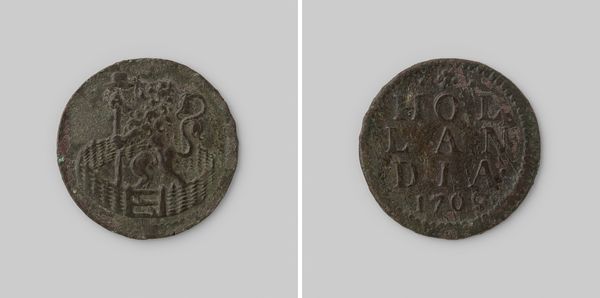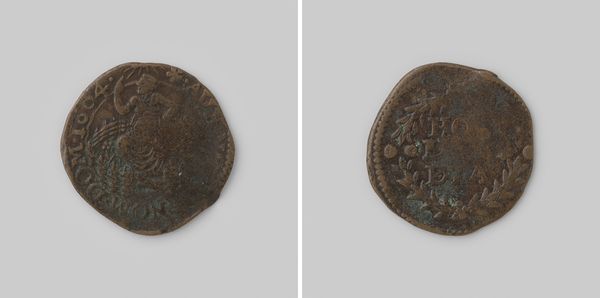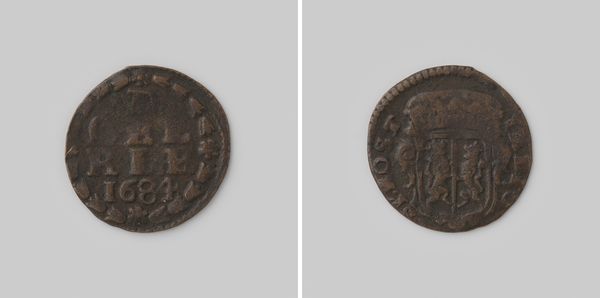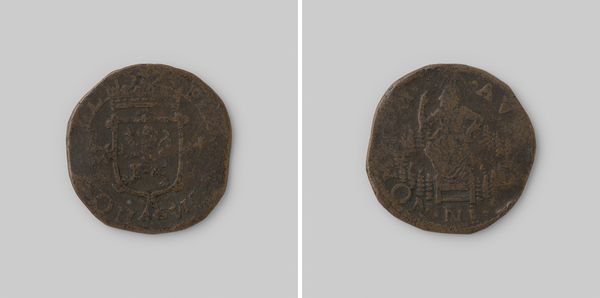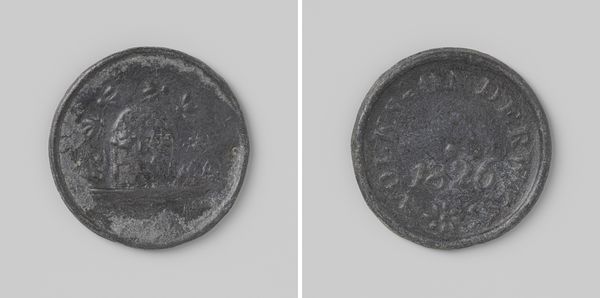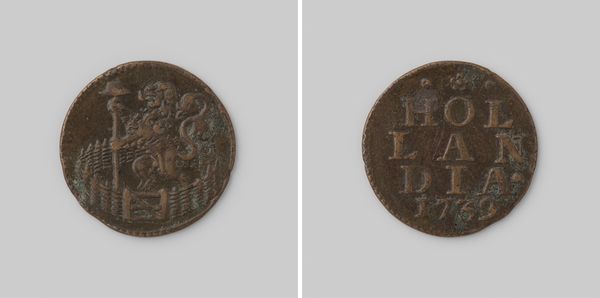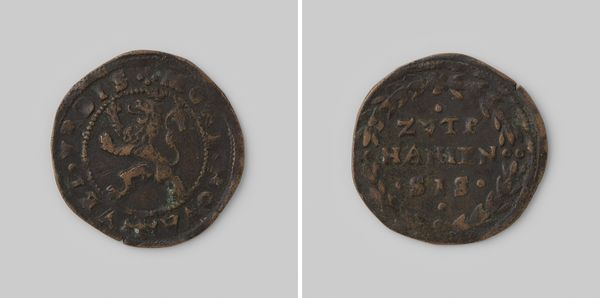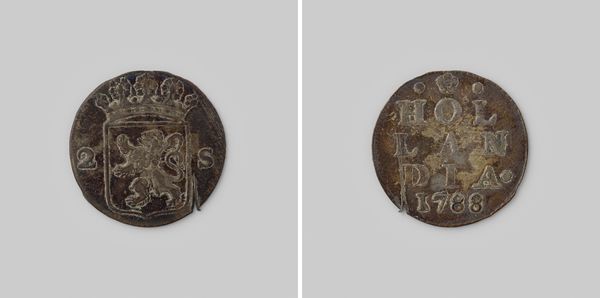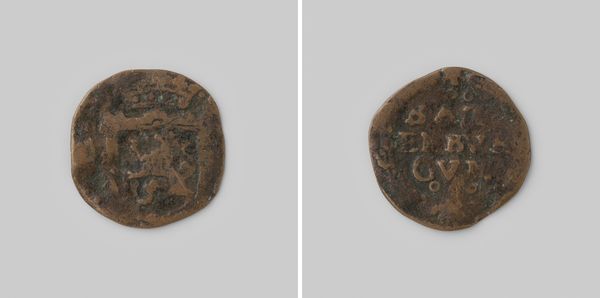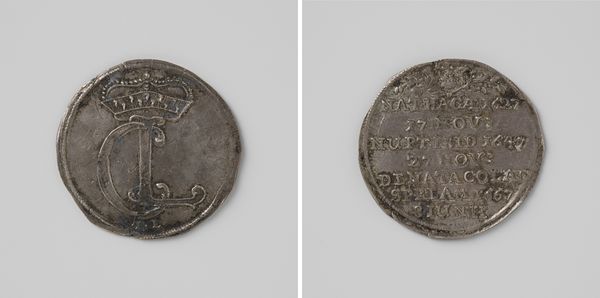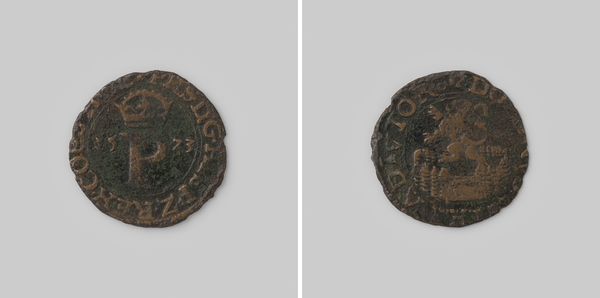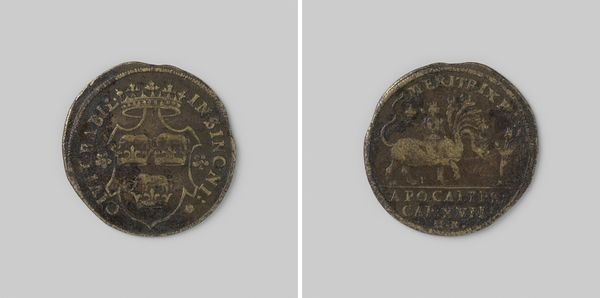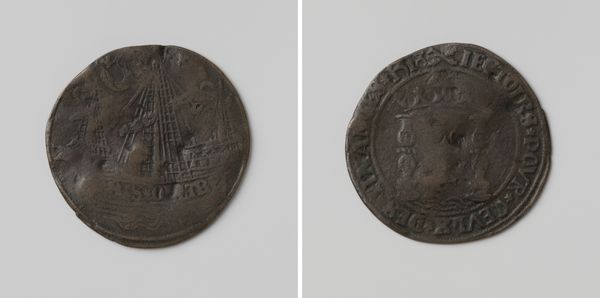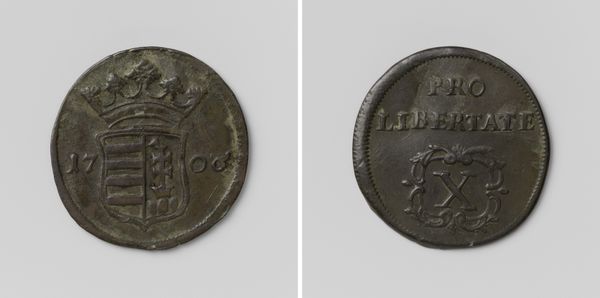
print, metal, relief
#
portrait
#
baroque
# print
#
metal
#
relief
#
ancient-mediterranean
#
ceramic
#
history-painting
Dimensions: diameter 2.1 cm, weight 2.80 gr
Copyright: Rijks Museum: Open Domain
This is a Gelderse duit, a coin made in 1702 by the Province of Gelderland. The worn materiality of the coin speaks to its history of circulation. Notice the circular form, a shape that inherently lacks a beginning or end, suggesting continuity and flow. On one side, the date '1702' is inscribed, framed by a wreath, creating a symmetrical composition. This structured arrangement provides a sense of order, contrasting with the coin's otherwise degraded surface. The very act of minting a coin involves the imposition of a standardized form onto raw material, reflecting a desire to control and codify value. Coins are not just objects of economic exchange but also function as symbolic artifacts embodying societal values and power structures. Consider the interplay between form and function; the coin's shape, texture, and imagery operate on both aesthetic and economic levels. These elements combine to give the coin its historical weight, reminding us that even the smallest objects can carry significant cultural information.
Comments
No comments
Be the first to comment and join the conversation on the ultimate creative platform.
